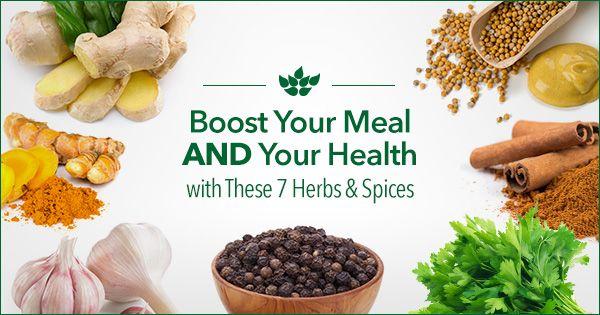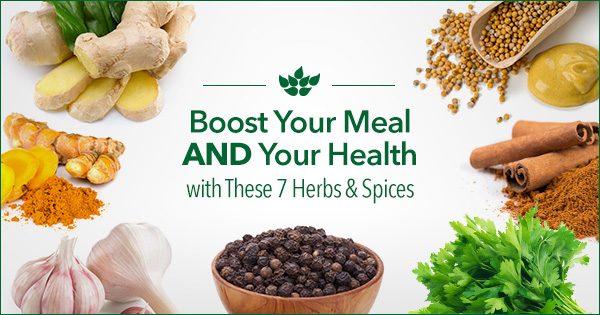If you’re a big fan of well-seasoned food, I have great news for you. If you don’t use herbs and spices in your cooking, listen up!
Many of us season our food without realizing all of the awesome nutritional benefits we’re sprinkling on.
That’s right — herbs and spices, just like other plants and roots, are an excellent way to boost your health. I mean, there’s a reason we have an entire category of herbal supplements — they’re Mother Nature’s way of providing solutions to our health needs.
So I’ve gone digging to find out some of the impressive health benefits of some of the most popular herbs and spices. I’ll also include ways to use those spices so you can start incorporating them into your diet.
Ginger
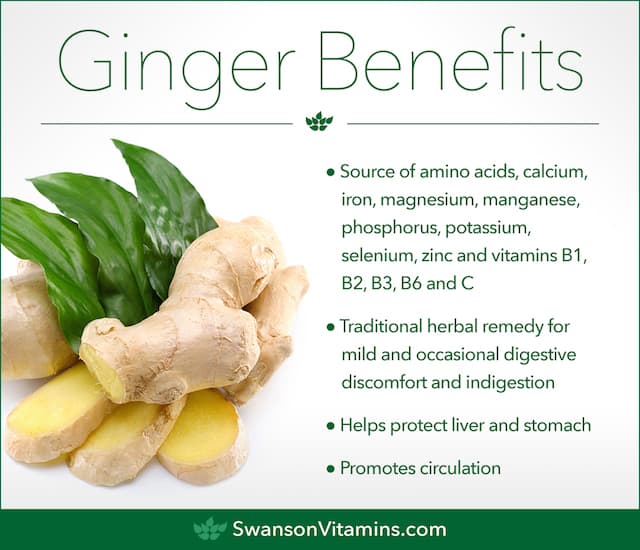
Ginger is packed with nutrients and health benefits. Ginger has amino acids, calcium, iron, magnesium, manganese, phosphorus, potassium, selenium, zinc and vitamins B1, B2, B3, B6 and C. Phew! In addition to those nutrients, ginger is a well-known traditional herbal remedy for mild and occasional digestive discomfort and indigestion. It helps protect the liver and stomach, promotes circulation, helps support joint health, and supposedly holds mild aphrodisiac properties.
How to use Ginger:
With that giant list of benefits, you’re probably wondering what you can do to eat more ginger. Ginger is typically a fall/winter spice. Ground ginger can be found in many cold-season baked goods like gingerbread and pumpkin pie. Fresh ginger is also an excellent option; grate it and add it to smoothies or desserts, make or buy candied ginger, use in complex savory dishes, or drink ginger tea. If none of those options sound appealing (or you just don’t like the flavor of ginger), you can always supplement it.
Garlic
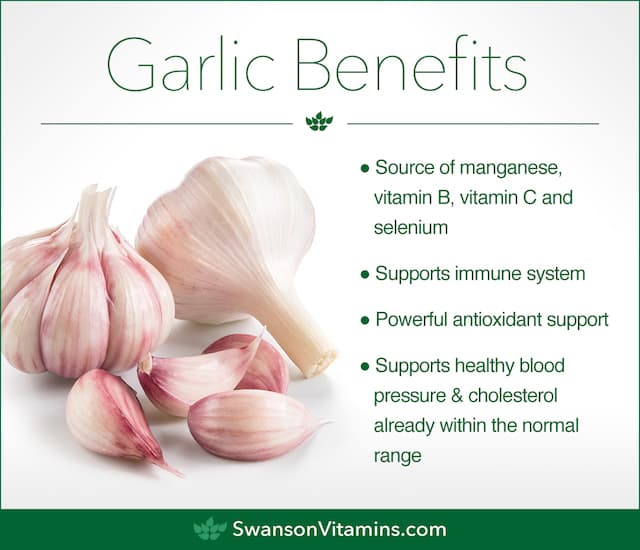
I’m a big fan of garlic, and knowing the health benefits makes me adore it even more. I’ve written before about the health benefits of garlic and a coworker has written a list of 40 garlic facts, so here’s a summary. Garlic contains manganese, vitamins B6 and C and selenium. Studies show that garlic can help support the immune system. Garlic supplements are popular for promoting cardiovascular health. It is also high in antioxidants, which may have a supportive impact on blood pressure and cholesterol already within the normal range.
How to use Garlic:
Fresh garlic has the best nutritional benefits, but if that doesn’t work for you, just use ample amounts of garlic powder. Garlic is one of the jack-of-all-trades of cooking. It pairs well with most savory dishes. But if you want to avoid getting garlic breath, garlic supplements are very popular.
Turmeric
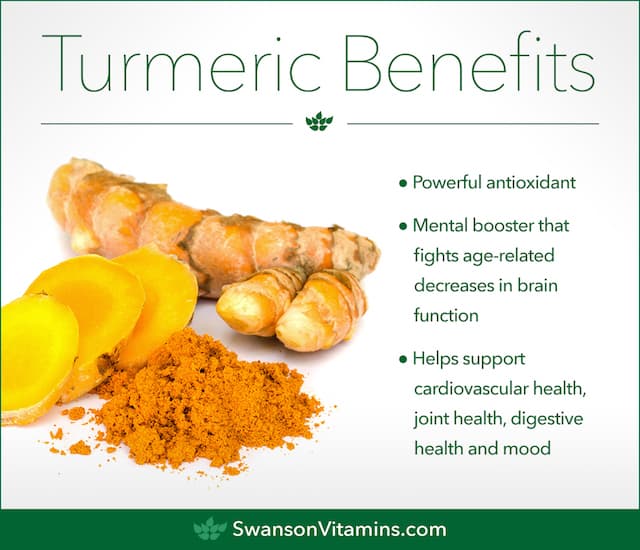
Turmeric is the antioxidant king! It’s a member of the ginger family and has been gaining popularity for its health benefits. The main active component of turmeric is curcumin, a potent antioxidant with powerful effects. Curcumin also acts as a mental booster, increasing brain function while working to delay age-related decreases in brain function. To add icing on the health benefit cake, turmeric helps support cardiovascular health, joint health, digestive health and mood. Now that’s a lot of benefit.
How to use Turmeric:
Turmeric is traditionally used in curries. As more people discover its health benefits, there are more creative recipes using the spice. Turmeric milk and turmeric tea are great places to start. I’ve even added turmeric to my coconut oil coffee before. Otherwise, add a little turmeric to savory dishes for interesting flavor, health benefits, and a wonderful yellow color. A little goes a long way with turmeric, so start small.
Black Pepper
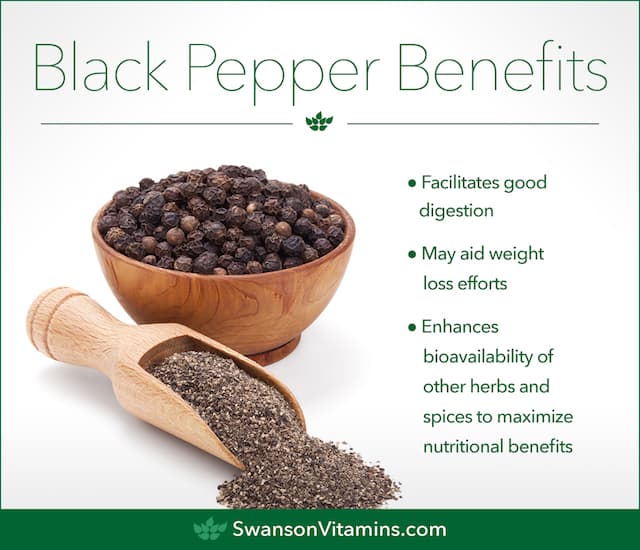
Black pepper is another spice that you tend to unconsciously sprinkle on everything without realizing the benefit it’s providing. Most notably, it’s great at facilitating good digestion by increasing hydrochloric acid secretion in the gut. Black pepper may also aid weight loss efforts since it assists the breakdown of fat cells. Many people supplement black pepper because it enhances bioavailability of other herbs and supplements, maximizing the benefits of taking vitamins and supplements. It is especially known to enhance the benefits of curcumin (found in turmeric), so try to use the two together whenever possible.
How to use Black Pepper:
This one should be easy, because you probably already use pepper. Add a sprinkle of pepper to any savory dish. Using more pepper will result in a spicy kick, but just a pinch shouldn’t be too spicy. If you can’t stand pepper or always forget to use it, pepper supplements are quite popular. Try to use fresh cracked pepper from a pepper grinder instead of pre-ground black pepper, since fresh cracked pepper is less likely to be stale (which means more benefit).
Cinnamon
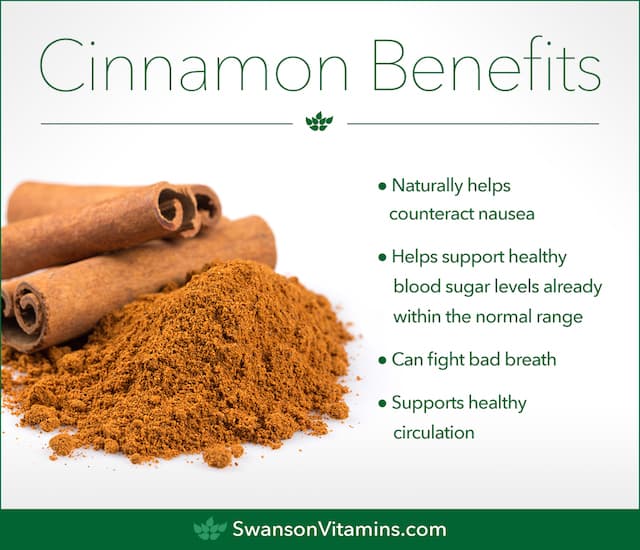
Cinnamon is one of the most popular spices in the world (just behind pepper and mustard). This spice is well-loved for the warm, sweet flavors it lends to desserts. But cinnamon’s usefulness doesn’t stop there. This spice has numerous health benefits. It warms the body while naturally counteracting nausea. Many people supplement cinnamon because it’s been shown to help support healthy blood sugar levels already within the normal range. Cinnamon can also fight bad breath and aid circulation. The list of cinnamon benefits goes on and on.
How to use Cinnamon:
The most popular way to use cinnamon is in desserts — a teaspoon or tablespoon of ground cinnamon is an excellent addition to almost any dessert. You can also add it to smoothies and use it for some savory meals; a little cinnamon can add a unique depth of flavor to chicken or beef. Add ground cinnamon or a cinnamon stick to tea, apple cider or coffee.
Mustard

Mustard seeds contain selenium and magnesium, two nutrients that can be difficult to find in the average diet and have powerful antioxidant properties. Mustard seeds also have good amounts of phosphorus, copper and manganese. Mustard is a member of the Brassica family, like broccoli and cabbage, and has phytonutrients that support overall wellness. Mustard seed is beneficial for gastrointestinal health.
How to use Mustard:
The simplest way to incorporate mustard seed into your diet is to use mustard — the common condiment. Just read the ingredient list to make sure mustard is one of the top ingredients. You can also buy mustard seeds or ground mustard in your cooking or make your own condiment.
Parsley
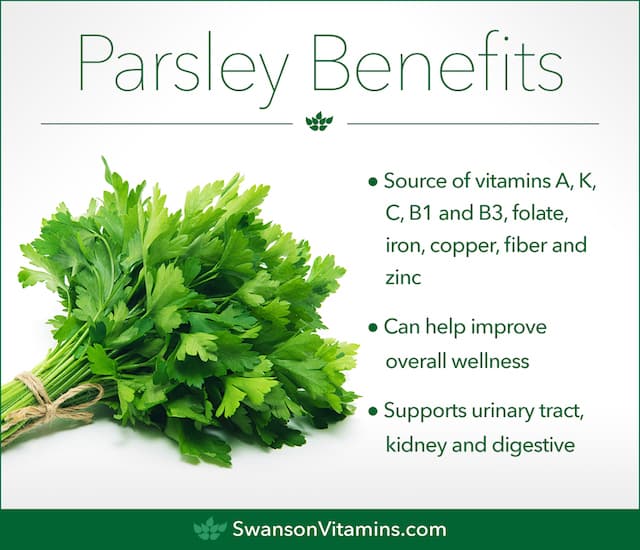
Parsley is often used as a garnish, but you’ll want to chow down after reading this. Parsley is the most popular herb in the world, and can help improve general wellness since it has such strong antioxidants and nutrients. It is a natural source of many vitamins and minerals, including vitamins A, K, C, B1 and B3, folate, iron, copper, fiber, zinc and much more. Parsley is known to benefit urinary tract, kidney and digestive health.
How to use Parsley:
Parsley is another versatile herb. It can be used in sauces, soups and stews. It can be chopped up and rubbed on meats before cooking. Add parsley to pesto and salads for extra health benefits. Use it as a garnish…but only if you’re going to eat it.
This isn’t an exhaustive list of all herbs and spices that are beneficial. Obviously, there are many more herbs and spices, but covering all of them would result in a never-ending post. These 7 herbs and spices are simply some of my favorites that have huge health benefits. If you’d like to see a similar post with different herbs and spices, let me know in the comments and I’ll start writing.
